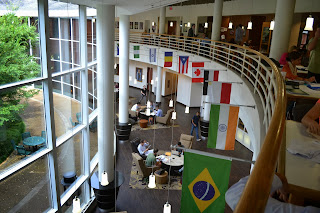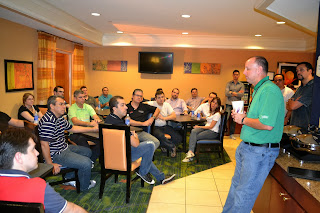Cristiane Tsuboi, International MBA at FIA, competes for AMBA’s Student
of the Year award.
Receiving applications
from over 180 business schools accredited by AMBA worldwide, the 2013 Student
of the Year award approaches its final decision by displaying a Brazilian
student within this year’s top 5 finalists.
Cristiane Truboi, International MBA student at FIA Business School,
regarded as one of the best 100 MBAs in the world according to London’s
Financial Times Rank, strove for excellence in a program taught entirely in
English and amounting up to 13 nationalities represented in the group.
According to Prof. Dr. James Wright, coordinator of FIA’s International
Executive MBA, International MBA and Americas MBA, this achievement owes to a
global effort developed throughout the course. “This result highlights the
great potential and transforming capacity in a young Brazilian executive’s
career in deciding to undertake a global-standard, internationally accredited
MBA offered in Brazil, by bringing together international students, themes,
cases and experiences”.
Ms. Tsuboi completed her MBA tied for first place in
her group with two other students: Marcin Wozniak from Poland and Tarun Kalra
from India. Her history of social work and professional experience, however, weighed heavily on her behalf. After all, before joining FIA’s International MBA,
Cristiane, an medical doctor
graduated from USP, collaborated alongside the Brazilian Navy in an
expedition to the Amazon, where she supplied medical assistance to riverside
communities in need, many times at great distances where medical assistance was
unheard of.
Experienced in Labor Health, she developed in her Final Paper an
enhanced system of Workplace accident management indicators that greatly
reduced costs for the company envisioned by the project.
As a finalist of the Student of the Year
award, who’s recipient will be announced at the annual AMBA meeting scheduled
for November 6 in London, UK, Cristiane has already been invited to serve for a
year as “MBA Ambassador” for AMBA.


























